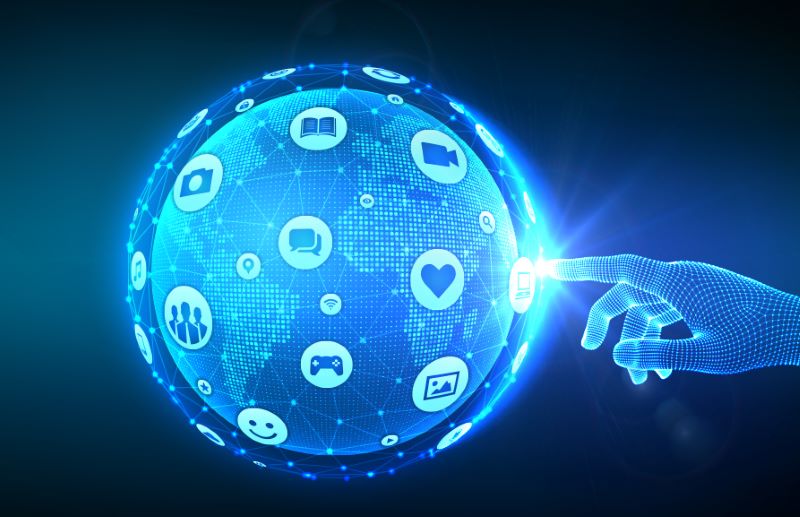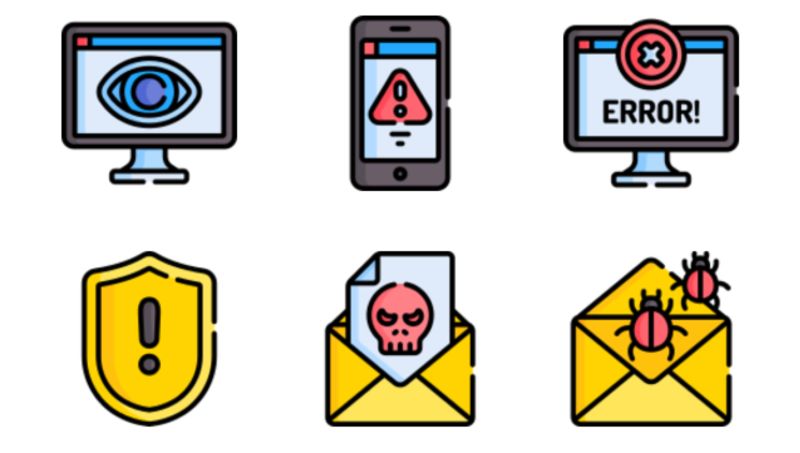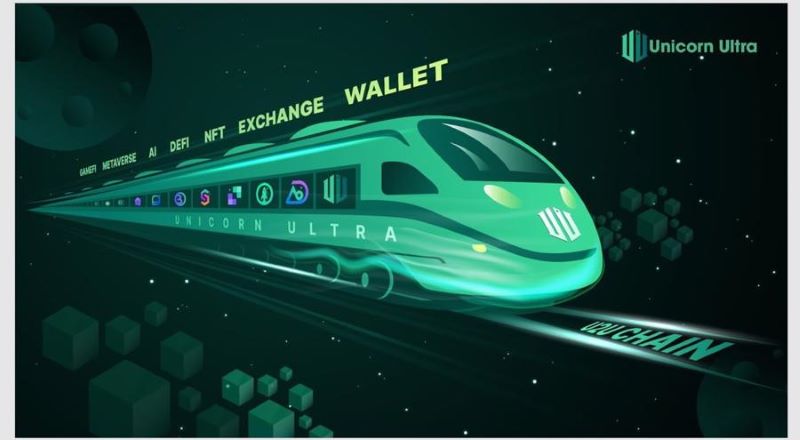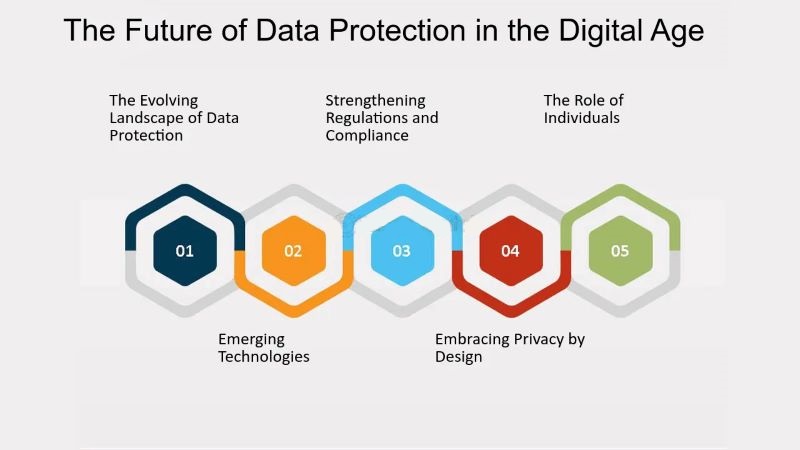Categories: Blockchain
Why choose a global decentralized network for data protection?
A "global decentralized network" is reshaping connectivity by enabling secure, peer-to-peer communication and data sharing without centralized control. This innovative approach enhances privacy, scalability, and resilience across various applications, from finance to communication systems, driving the future of global digital infrastructure.
Why choose a global decentralized network for data protection? In an era where data breaches and privacy concerns loom large, global decentralized networks (GDNs) emerge as a beacon of trust and security. Unlike traditional centralized systems, GDNs distribute data across a network of nodes worldwide, eliminating single points of failure and enhancing resilience against cyber threats. By harnessing the power of blockchain technology and advanced cryptographic methods, GDNs not only safeguard sensitive information but also empower users with unprecedented control over their data. Join us on a journey to explore how GDNs redefine data protection standards and pave the way for a more secure digital future.
Table of Contents
Understanding Global Decentralized Networks
Global decentralized networks are network systems where data is distributed and stored across multiple nodes worldwide, with each node acting as an independent data storage and processing point. Unlike traditional centralized networks, global decentralized networks lack a single point of control and instead rely on distribution and consensus among nodes to ensure data availability and reliability.
Key Principles of Global Decentralized Networks
- Decentralization: This principle lies at the core of global decentralized networks, allowing decisions and data not only to be distributed but also to be determined and accepted through distributed consensus processes, rather than relying on a single controlling entity. This helps minimize the risks associated with a single point of failure and enhances overall system sustainability.
- Cryptography: Global decentralized networks use cryptography to protect data. Each transaction and piece of information transmitted across the network is encrypted to prevent unauthorized access and ensure data security.
- Consensus Mechanisms: These are processes or algorithms used to achieve agreement among nodes in global decentralized networks. These mechanisms ensure that transactions and changes within the network are executed safely and reliably, even without direct supervision from a third party.

Benefits that the global decentralized network brings
- Enhanced Security: With encryption and decentralization, global decentralized networks provide a higher level of security compared to centralized systems, reducing the risk of external attacks and intrusion.
- Resilience: The distributed nature of global decentralized networks helps them withstand issues such as system failures or network attacks more effectively, as there is no single point of vulnerability.
- Privacy: Users have better control over and protection of their personal information, as data is distributed across global nodes rather than centralized in a single location.
- Data Ownership: With a decentralized model, users retain ownership and control over their personal data, independent of any single organization or company.
The Vulnerabilities of Centralized Data Storage
Single Point of Failure
Centralized data storage systems pose a significant risk due to their reliance on a single point of failure. This means that if the central storage repository is compromised or breached, all data stored within it becomes vulnerable. Attackers target this vulnerability to gain unauthorized access to sensitive information, potentially leading to extensive data leaks and privacy violations.
Data Breaches and Hacks
Centralized systems are frequent targets of data breaches and hacks due to their concentrated nature. These incidents occur when malicious actors exploit vulnerabilities in security protocols or gain unauthorized access to the central database. The consequences can be devastating, including financial losses, identity theft, reputational damage for organizations, and compromised user trust. The frequency of such breaches underscores the inherent risks associated with relying on a single, centralized storage solution for sensitive data.

Data Misuse and Surveillance
Entities that control centralized data repositories have significant power over the information stored within them. This can lead to misuse of data, where personal information is accessed, manipulated, or exploited without user consent. Moreover, centralized entities may engage in surveillance practices, monitoring user activities or behavior patterns based on the data they hold. Such practices raise concerns about privacy infringement and ethical implications, as users may not have full control over how their data is used or shared.
How GDNs Enhance Data Protection
Distributed Data Storage:
Global Decentralized Networks (GDNs) implement distributed data storage, where data is spread across multiple nodes globally. This decentralized approach means there is no single central repository that, if compromised, would expose all data. Each node only holds a fragment of the complete dataset, making it significantly harder for hackers to target and access sensitive information.
Encryption and Cryptographic Techniques:
GDNs utilize advanced encryption and cryptographic techniques to ensure secure data transmission and storage. Encryption converts data into a secure format during transmission and storage, making it unreadable to unauthorized users. Cryptographic techniques enhance security by verifying the integrity of data and ensuring that only authorized parties can access and manipulate it.
Decentralized Control:
In GDNs, control over data is decentralized, meaning there is no single entity with absolute control or authority over the entire network. This decentralized control structure eliminates the risk of a single entity manipulating or censoring data for their own benefit. Instead, decisions and operations are governed collectively through consensus mechanisms among network participants.
Data Ownership and Control:
Users within GDNs retain ownership and control of their data. Unlike centralized systems where data ownership might be ambiguous or controlled by a central authority, GDNs ensure that users have the autonomy to manage their data according to their preferences and privacy requirements. This enhances transparency and trust within the network, as users can verify how their data is used and who has access to it.
U2U Network: A Leading Example of a GDN
Introduction to U2U Network:
U2U Network is a blockchain-based platform that utilizes Directed Acyclic Graph (DAG) technology to facilitate decentralized data transmission and storage. Unlike traditional blockchain architectures, DAG allows for parallel processing of transactions, enhancing efficiency and scalability in data handling.

Key Features:
- High-speed Data Transfer: U2U Network supports high-speed data transfer capabilities, enabling swift transmission and retrieval of information across its decentralized network of nodes.
- Scalability: By leveraging DAG technology, U2U Network scales efficiently as network demand increases, ensuring smooth operations and accommodating growing data volumes without compromising performance.
- Robust Security: The platform prioritizes robust security measures, utilizing cryptographic techniques and decentralized consensus mechanisms to safeguard data integrity and protect against unauthorized access or tampering.
- Incentivized Bandwidth Sharing: U2U Network incentivizes users to share their bandwidth and computing resources. This collaborative approach not only optimizes network resources but also enhances reliability and resilience against potential disruptions.
The Future of Data Protection: GDNs and Beyond
The future of data protection is rapidly evolving towards decentralized solutions, driven by increasing awareness of vulnerabilities in centralized systems. Global Decentralized Networks (GDNs) are emerging as pivotal players in this paradigm shift, offering enhanced security, privacy, and resilience in data management. This shift is evident not only in the rise of cryptocurrencies and blockchain applications but also in the demand for decentralized storage, communication, and identity solutions.

The potential of global decentralized networks (GDNs) is amplified through their integration with cutting-edge technologies. By coupling GDNs with artificial intelligence (AI), more intelligent data management systems can be developed, capable of proactive threat detection and response. Edge computing, which processes data closer to its source, complements GDNs by enabling faster data processing and reducing latency. Moreover, advanced technologies such as zero-knowledge proofs and homomorphic encryption are poised to enhance data privacy and security within GDNs.
U2U Network stands at the forefront of this transformative evolution. Leveraging blockchain technology and Directed Acyclic Graph (DAG) architecture, U2U Network pioneers innovative solutions that redefine data protection standards. Their commitment to decentralization, security, and user empowerment sets a benchmark for a more secure and equitable digital future. As GDNs mature, projects like U2U Network will continue shaping the next generation of data infrastructure, ensuring data remains secure, private, and under user control.
.png)